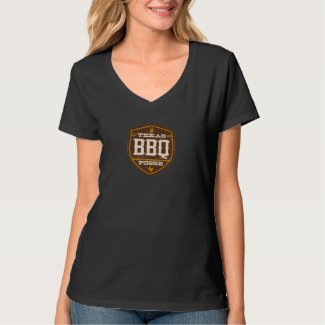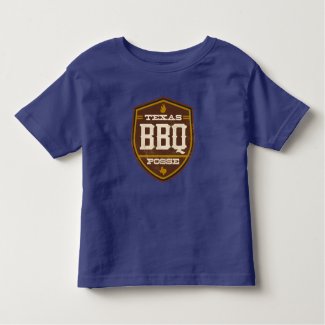
In Sunday’s Parade magazine, John T. Edge, the noted Southern food writer, weighs in on the nationwide barbecue renaissance. (By the way, if you haven’t seen Parade in a while, you might be stunned to see it today. It’s a deathly shadow of its former self, with a much smaller format and far fewer pages – more like a pamphlet than a magazine.)
Edge writes that Americans have “adopted barbecue as our national folk food. … The new question is, how high can barbecue go?”
It will come as no surprise to anyone who’s read one of these rebirth-of-barbecue articles that Aaron Franklin is featured prominently in Edge’s piece – as well he should be:
Aaron Franklin, who furrows his brow when cooking but flashes a quick, sweet smile to customers, leads the new-traditionalist charge. He came by his credentials honestly. In Bryan, Tex., where he grew up, his parents ran their own barbecue stand. Franklin, 35, took a slightly different path: In 2009, he and his wife, Stacy, opened their first Austin barbecue spot in a converted trailer. A skilled metalworker, Franklin cut a hole in the side of the trailer and installed a wood-burning pit. He spiked his sauce with espresso. Such developments screamed newfangled.
But he is also committed to the traditional ways. Depending on the weather and the size of the briskets, Franklin smokes the behemoths for 12 to 18 hours over aged post oak—native to Texas—which imparts a sweet flavor. The result is as old as the marriage of fire and smoke, and as delicious as barbecue gets.
Edge holds a master’s degree in Southern studies from the University of Mississippi, where he directs the Southern Foodways Alliance, a nonprofit academic organization that “documents, studies, and celebrates the diverse food cultures of the changing American South.” He’s a student of America’s history as well as her food. That’s one of the things that makes reading him rewarding.
In this article, for example, I learned that the Father of Our Country would have made a good Posse member:
When George Washington “went in to Alexandria to a Barbecue and stayed all Night,” as he wrote in a 1769 diary entry, he probably partook of a whole hog, cooked over hardwood coals.
With all the lavish attention being heaped on handcrafted barbecue today, it’s easy to forget that not long ago it almost became an endangered species. Edge, God bless his soul, blames this on gassers:
By the 1980s, regional food culture was on the ropes, a victim of Americans’ love of fast-food and chain restaurants. Barbecue fared no better. Restaurants pulled out their wood-burning pits and installed gas-fueled smoke boxes. Americans were sold on the naive idea that great barbecue is built on bottled sauces.
In surveying the current landscape, Edge is more open-minded than many traditionalists would be. He praises one California pitmaster who makes smoked tofu. He has kind things to say about Smoke in Dallas, “where briskets get a coffee rub and pulled pork sandwiches come with unorthodox blue cheese slaw.” (My experiences at Smoke, on Fort Worth Avenue next to the Belmont Hotel, have been mixed. I’ve had good meals there, and a couple that were uninspired. Chef Tim Byres does some interesting things with woodfire, but I’m not sure any of it is barbecue.)
Close followers of the Dallas food scene may find curious a sidebar accompanying Edge’s article. Parade “asked top restaurant critics across the country to name their favorite barbecue joint that’s opened in the past few years.” In Dallas, the magazine called on Leslie Brenner of The Dallas Morning News. She commended Lockhart Smokehouse. Parade quoted her as saying, “this joint has excellent pork ribs, jalapeño cheddar sausage, and shoulder clod.”
It wasn’t always so. In May 2011, three months after Lockhart Smokehouse opened in the Bishop Arts District, Brenner wrote a punishing review. The brisket, she said, “was remarkable only for how dry and underseasoned it was.” The shoulder clod was “woefully dry.” The pork ribs “were tough, with a thick layer of unrendered fat.”
Her review poked fun at what was then the restaurant’s motto, “No forks! No sauce! No kidding!”
“You know what? If you’re not going to offer barbecue sauce, the meat had better be awfully good,” Brenner wrote. She found the absence of forks “an affront” to customers.
After the review ran, Lockhart’s owners broke out a box of plastic forks and displayed them, along with a pointed response to the critic.
It must be noted that Brenner was hardly alone in finding Lockhart’s refusal to offer forks or sauce an annoying affectation. Today, the joint has both. The motto has been modified to, “No forks! No sauce! Needed.” And several people have told me they think both the quality and consistency of Lockhart's offerings have improved significantly since the early days.
 |
| Patrons enter Lockhart Smokehouse in Dallas. (Photo ©Chris Wilkins) |







